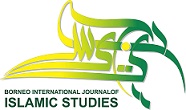The Role of Ulama in the Application of Islamic Syariah in Aceh: A Study of Aceh Ulama Council’s Fatwa on Apostasies and Heresies
Abstract
This article examines the role of ulama in the implementation of Sharia in Aceh by focusing on the study of their fatwa concerning apostasies and heresy. Since the time of the Aceh Sultanate, the role of the ulama has been prominent as the royal judges who applied sharia due to the status Aceh as the region that embraces Sunni Islam as the official schools of jurisprudence and theology. This situation continues in the period of independence and it has legally been further strengthened in the post-Soeharto regime (reformation era) by the special autonomy status granted to Aceh that includes the right to implement sharia in full. Based on the special autonomy, the council of ulama in Aceh, known as Majelis Permusyawaratan Ulama (the Consultative Assembly of Ulama) or MPU) is officially instuted as the government partner and vested with the authority to issue religious edicts (fatwa) and give considerations regarding the problems of governance, development, community development, and Islamic economy to the government. With regards to Islamic theology, the MPU has the authority to determine the orthodoxy of a religious group by issuing fatwa. As studied, there are fourteen fatwa issued by the MPU on sects and religious movements flourished in Aceh which are deemed to be deviating from Islamic orthodoxy; those include Shiah, Millata Abraham, and Gafatar. From in-depth studies of the fatwa, this article reveals that the influential role of ulama in Aceh in the life of society and government comes from three legitimations, namely; history, legal, and social. This thus has made the society and government feel bound by the MPU fatwa on apostasies and heresies which prompt the Aceh government to ban the groups despite freedom of religion guaranteed by the constitution. This condition is theoretically appealing because, as far as the legal system of Indonesia is a concern, obeying a fatwa is a matter moral compliance instead of legal compliance.
Keywords: Aceh, Islamic Sharia, Ulama Council’s Fatwa on Apostasies and Heresies
References
Amin, KH Ma’ruf, and et.al. Mengenal & mewaspadai penyimpangan syi’ah di Indonesia: buku panduan Majelis Ulama Indonesia : dilengkapi pernyataan ulama-ulama besar Indonesia, Hadratu Syaikh Hasyim Asy’ari, Prof. Dr. Hamka, Dr. Muhammad Natsir, K.H. Hasan Basri. Jakarta: Majelis Ulama Indonesia, 2013.
Azra, Azyumardi. Jaringan ulama: Timur Tengah dan kepulauan Nusantara abad XVII & XVIII : akar pembaruan Islam Indonesia. Bandung: Mizan, 1998.
Budiardjo, Miriam. Pengantar Ilmu Politik. Jakarta: Gramedia Pustaka Utama, 1998.
Daud, Darni M. Qaun Moukuta Alam Dalam Syarah Tadhkirah Tabaqat Teungku Di Mulek Dan Komentarnya. Banda Aceh: Unsyiah Kuala University Press, 2010.
dkk, Dr Arskal Salim. Serambi Mekkah yang Berubah. Jakarta: Pustaka Alvabet, 2010.
D.S. Margoliouth, D.Litt. Umayyah and “Abbasids Being The Fourth Part of Jurji Zaydan”s of Islamic Civilization. London: Kitab Bhavan New Delhi, 1978.
“Fatwa MPU Aceh Nomor 1 Tahun 2015 Tentang Gerakan Fajar Nusantara (GAFATAR).pdf.” Accessed July 5, 2018. https://mpu.acehprov.go.id/uploads/Fatwa%20MPU%20Aceh%20Nomor%201%20Tahun%202015%20tentang%20GAFATAR.pdf.
Firdaus. “Peran Ulama HUDA Dalam Politik Pasca Orde Baru, Rehab-Rekon Aceh Pasca Gempa Dan Tsunami, Pasca MoU Helsinki Hingga Sekarang.” Tesis, UIN Ar-Raniry, 2010.
Fitriani. “Keterlibatan Ulama Dalam Berpolitik Di Banda Aceh.” Tesis, UIN Sumatera Utara, 2016.
Indonesia. Undang-Undang Republik Indonesia Nomor 11 Tahun 2006 Tentang Pemerintahan Aceh, Pub. L. No. Banda Aceh: Dinas Informasi danKomunikasi Provinsi Nanggroe Aceh Darussalam (2006).
Koharuddin, Nasrul. Ahmad Mushaddeq dan ajaran al-Qiyadah al-Islamiyah. Gramedia Pustaka Utama, 2008.
Magnis Suseno, Franz. Etika politik: prinsip-prinsip moral dasar kenegaraan modern. Jakarta: Gramedia, 1988.
Mas’adi, Ghufron A., trans. Sejarah sosial ummat Islam. Jakarta: RajaGrafindo Persada, 2000.
Mubarrak, Husni. “Kontroversi Asuransi Di Indonesia: Telaah Fatwa Majelis Ulama Indonesia (MUI) Tentang Badan Penyelenggara Jaminan Sosial (BPJS).” TSAQAFAH 12, no. 1 (May 16, 2016): 105–30. https://doi.org/10.21111/tsaqafah.v12i1.370.
Muhammad, Rusjdi Ali. Revitalisasi syari’at Islam di Aceh: problem, solusi, dan implementasi. Jakarta: Kerjasama IAIN ar-Raniry, Nanggroe Aceh Darussalam dengan Penerbit Logos Wacana Ilmu, 2003.
Na’im, Abdullahi Ahmed an-. Islam Dan Negara Sekular: Menegosiasikan Masa Depan Syariah. Bandung: Mizan, 2007.
Nurdin, Nazar. “Delik Penodaan Agama Islam Di Indonesia.” International Journal Ihya’ ’Ulum Al-Din 19, no. 1 (September 7, 2017): 129–60. https://doi.org/10.21580/ihya.18.1.1745.
“Pertimbangan Majelis Permusyawaratan Ulama Nomor 08 Tahun 2011 Tentang Rencana Pembangunan Mall Dan Hotek Best Western Aceh.” Accessed July 4, 2018. https://mpu.acehprov.go.id/uploads/NOMOR%20%2008%20TAHUN%202011%20RENCANA%20PEMBANGUNAN%20MALL%20DAN%20HOTEL%20BEST%20WESTERN%20ACEH.pdf.
“Qanun Aceh No. 8 Tahun 2014 Tentang Pokok-Pokok Syariat Islam | Jaringan Dokumentasi dan Informasi Hukum Aceh.” Accessed July 5, 2018. https://jdih.acehprov.go.id/qanun-aceh-no-8-tahun-2014-tentang-pokok-pokok-syariat-islam.
“Qanun Nomor 2 Tahun 2009 on Acehnese Ulama Council (Majelis Permusyawaratan Ulama, MPU.” Accessed July 4, 2018. http://simeuluekab.go.id/uploads/qanun_aceh_no_2_tahun_2009(1).PDF.
Saby, Yusny. “Islam and Social Change: The Role The Ulama In Achenese Society.” Dissertation, Temple University, 1995.
Salim, Arskal. Challenging the Secular State: The Islamization of Law in Modern Indonesia. Honolulu: University of Hawaii Press, 2008.
Siregar, Hasan Basri. “Islamic Law in a National Legal System: A Study on the Implementation of Shari’ah in Aceh.” Asian Journal of Comparative Law Volume 3, no. 1 (2008): Article 4.
Sufyan, Muhammad Suhaili. “Peranan Majelis Permusyawaran Ulama Dalam Sistem Pemerintahan Aceh.” Dissertation, University of Malaya, 2016.
Suma, Muhammad Amin. Hukum keluarga Islam di dunia Islam. Jakarta: RajaGrafindo Persada, 2004.
Suprianto, and et.al. Islam and Local Wisdom: Religious Expression in Southeast Asia: Islam dan Kearifan Lokal: Ekpresi Keberagamaan di Asia Tenggara. Yogyakarta: Deepublish, 2016.
Widyantoro, Hary. “Undemocratic Response Towards ‘Deviant’ Judgement and Fatwa: Sunni-Shiite Conflict in Sampang, Madura, East Java.” Mazahib 16, no. 1 (June 30, 2017): 18–32. https://doi.org/10.21093/mj.v16i1.768.
Yeoh, Siok Cheng. “Umara-Ulama-Ummah Relations and Pesantrens in Aceh Province, Indonesia: A Study of the Challenges to the Authority of a Traditionalits Kiyai.” Dissertation, University of Washington, 1994.
Serambi Indonesia. 25 April 2011.
Harian Merdeka. 26 January 2011.


.png)






